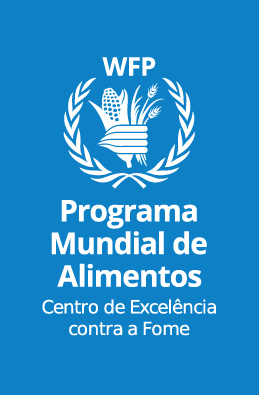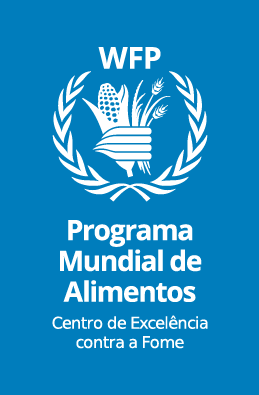Financiando Alimentação Escolar
O Centro de Excelência contra a Fome do Programa Mundial de Alimentos lança hoje a segunda publicação da Série Boas Práticas, trazendo exemplos de ferramentas de financiamento de Programas de Alimentação Escolar bem-sucedidos em diversos países e diferentes contextos.

O aumento na frequência e na taxa de matrículas; a melhoria da nutrição, da saúde e do bem-estar dos estudantes; os impactos diretos e indiretos nas famílias como um todo; e até mesmo o incentivo ao desenvolvimento de capital humano e economias locais, são exemplos dos múltiplos efeitos positivos da alimentação escolar. Eles representam elementos chave para estimular investimentos em Programas Nacionais de Alimentação Escolar.
Um dos desafios desse processo é estabelecer acordos que assegurem o financiamento necessário enquanto também promovem a sustentabilidade dos programas. A publicação destaca exemplos de modelos de financiamento de programas nacionais de alimentação escolar usando diferentes estruturas legais e acordos de parcerias.
O Camboja e a Nigéria, por exemplo, demonstram que programas nacionais podem ganhar impulso significativo – e fundos correspondentes – em contextos onde governos decidem expandir investimentos em pacotes de proteção social.
Uma outra ferramenta crucial para estimular programas nacionais em vários países é a adoção de leis de alimentação escolar por parlamentos nacionais, em adição às políticas desenvolvidas pelos setores executivos dos governos. Na Guatemala, a lei de alimentação escolar é muito ambiciosa em suas provisões sobre financiamento, incluindo o valor alocado para o programa por estudante por dia, bem como a fonte dessa receita dentro do orçamento estatal. Além dessa dotação orçamentária, a lei também prevê a possibilidade de revisar alocações a cada dois anos para acompanhar as mudanças no ambiente de implementação do programa.
Os casos do Sri Lanka e Tunísia atestam que a priorização da nutrição infantil pode ser um grande incentivo para aumentar o investimento em programas nacionais de alimentação escolar, seja para reduzir deficiências de micronutrientes ou para enfrentar o desafio crescente da obesidade e sobrepeso infantil.
Jordânia e Moçambique são exemplos de países que dependem do apoio de parceiros de desenvolvimento para financiar seus programas, seja por motivos de grandes crises econômicas que podem afetar programas estabelecidos, ou como um meio de dar um pontapé inicial em uma nova iniciativa nacional.
A Série Boas Práticas é uma coleção de publicações temáticas do Centro de Excelência contra a Fome do PMA que visa trazer bons exemplos de políticas, ações e experiências relacionadas à alimentação escolar de diversos países.
Clique aqui para fazer o download da publicação em Português
Click here to download the publication in English





